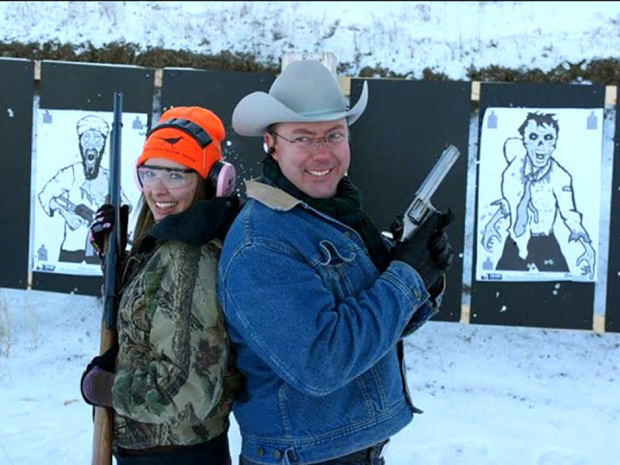Even within the benighted ranks of the Conservative Party of Canada, Rob Anders stood out: a walking nullity, his every word spoken as though by rote, a person for whom “convictions” were a sign, not of moral strength, but of a complete and utter inability to consider, reflect or question. He looked somewhat like a wax figure of himself, his face unlined, his brow unfurrowed; lacking the fire of inner certainty, he displayed instead the stuporous blandness of a patient under general anesthetic. “In a Commons loaded with lightweights,” said one seasoned commentator, “Calgary West’s MP almost defies gravity.”
How he managed to hang on for so long is somewhat of a mystery. No doubt Stephen Harper had much to do with that–the two of them went back to the old Reform Party days, and he was endorsed once again by Harper this time around, but to no avail. Even bogus telephone calls couldn’t save him. Until now nomination opponents in his riding association tended to be cut off at the pass, but his rival Ron Liepert will be the next MP from what is now Calgary-Signal Hill.
Anders was an embarrassment, one might have thought, to the constituents who returned him to his dozy seat in Ottawa six times. One almost felt called upon to make excuses for them. Yet with each successive election, he increased his popular vote; *vox populi, vox dei*, but sometimes the Lord works in mysterious ways.
“When in doubt, pull the trigger,” he said to troops serving in Afghanistan. He publicly accused Tom Mulcair of hastening Jack Layton’s death. He called legislation to include gender identity in the Canadian Human Rights Act and the hate speech provisions of the Criminal Code, a “bathroom bill.”
Alone among his Conservative colleagues and the whole House of Commons, he opposed honorary citizenship for Nelson Mandela, and refused to take his call when the great liberator and conciliator, demonstrating an almost superhuman spirit of charity, phoned to discuss Anders’ concerns. He publicly abused veterans who dared criticize him for nodding off when the plight of homeless vets was being discussed at the Veterans’ Affairs Committee. He was forced to deliver a short apology in the House of Commons, which he read from a script, and was quietly removed from the Committee shortly afterwards.
Now he shall be removed from his seat, although we have more than a year to wait and no doubt to record some further gems along the way. It’s a long-overdue extraction, even by today’s much-lowered political standards. Anders represents the absolute worst in politics. He was no hot-headed zealot nor even, I would argue, a cold-blooded ideologue, the former requiring passion, the latter, calculation. He was simply an empty vessel, from time to time exuding mephitic fumes. His was not a presence, but a terrible absence of that which makes us human: he embodied the sheer and unremitting banality that has countenanced, encouraged and enabled some of the worst crimes in history.
That he had no opportunity to play such a role in quiet little Canada does not prevent us from recognizing the type. As always we are left wondering how such creatures come to be, and worse, acquire a following. Having no answer to that riddle, however, we can merely shudder with relief when another one of them falls.



